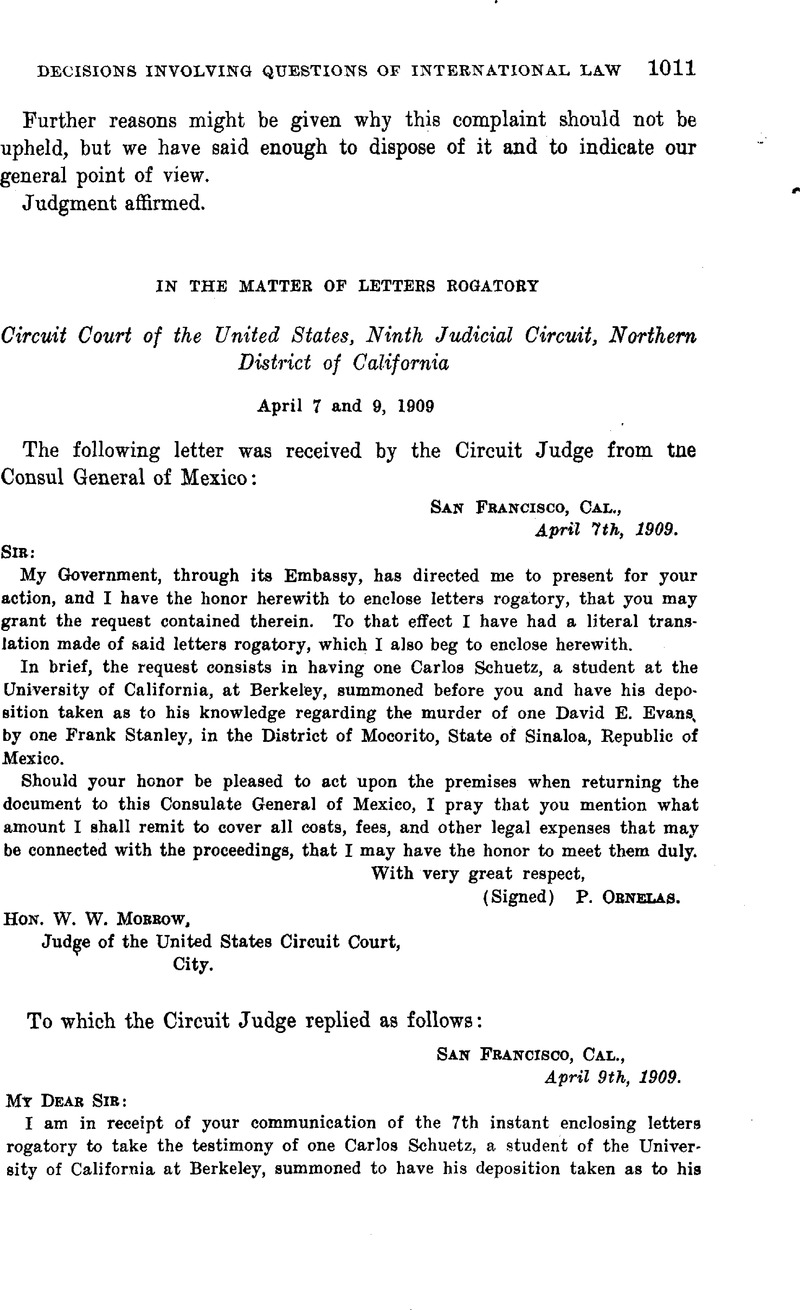Letters Rogatory Explained: Facilitating Legal Participation In Between Countries

Meaning of Letters Rogatory
Letters rogatory are official requests made by a court in one territory to a court in another territory, looking for aid in acquiring proof or testimony for a legal action. This procedural system is important in the context of global regulation, where legal systems may differ, and cross-border cooperation is essential. Letters rogatory help with the event of details that might be vital for settling cases, particularly in circumstances entailing intricate transnational issues.
Normally, these demands emerge in civil, criminal, or management issues where a celebration needs evidence that is located outside the territory of the requesting court. The letters work as a means to ensure that the concepts of due process are supported, making it possible for courts to gain access to proof that might or else stay hard to reach because of lawful or geographical barriers.
Using letters rogatory is governed by international treaties, bilateral agreements, or residential regulations, which mark the treatments and commitments of the courts entailed. It is necessary to keep in mind that the implementation of such requests is not assured; they rely on the laws and methods of the jurisdiction receiving the letter. Thus, letters rogatory are a critical tool for fostering lawful cooperation and making certain justice across boundaries.
The Refine of Issuing Letters Rogatory
Issuing letters rogatory includes a structured procedure that guarantees conformity with both residential and worldwide legal requirements. At first, the requesting party, generally a court or lawful authority, drafts a formal demand outlining the nature of the assistance looked for, the proof or information needed, and the lawful basis for the request. This record should be precise to promote understanding by the foreign territory.

The following action includes transferring the letters rogatory to the assigned foreign authority. This is commonly done with diplomatic channels or global lawful help structures, making certain that the demand is received and acknowledged by the international court. The foreign court after that processes the request according to its very own lawful procedures, inevitably replying to the asking for celebration with the sought-after details or evidence, hence promoting worldwide legal collaboration.
Value in International Legislation
The significance of letters rogatory in international law can not be overemphasized, as they serve as a vital device for judicial teamwork across boundaries. These formal requests for aid in legal issues enable courts in one jurisdiction to look for information, proof, or the presence of witnesses from an additional jurisdiction, consequently promoting the management of justice in transnational instances.
Letters rogatory are particularly vital in the context of globalization, where legal disagreements commonly span numerous countries. They allow the collection of evidence that may or else be unattainable, making certain that legal process are informed and reasonable. By fostering partnership in between judicial systems, letters rogatory assistance copyright the regulation of legislation and advertise shared regard among nations.
Additionally, using letters rogatory shows a dedication to international norms and principles of teamwork, reflecting the interconnected nature of modern-day legal methods. It illustrates the significance of sticking to recognized treatments and treaties, such as the Hague Convention, which gives a framework for these requests - Letters rogatory. Inevitably, letters rogatory boost the efficacy of legal procedures, making certain that justice is not hindered by geographical limits
Difficulties and Limitations
Regardless of their importance, letters rogatory face several difficulties and constraints that can impede their efficiency. One key issue is the varying lawful structures and procedures across jurisdictions, which can result in misunderstandings and hold-ups in the implementation of demands. Various nations might have distinct needs for the validity of letters rogatory, making complex the procedure further.
Furthermore, the frequently drawn-out nature of worldwide legal participation can prevent prompt accessibility to proof or witnesses. This hold-up may negatively affect lawful process or continuous investigations, especially in instances calling for immediate action. Furthermore, the lack of sources and training in some jurisdictions can result in not enough handling of demands, bring about inadequate or incomplete responses.
Cultural distinctions and differing attitudes in the direction of lawful processes can also posture substantial barriers. For instance, nations with less official lawful systems might battle to conform with the procedural rigor anticipated in letters rogatory. Finally, political tensions in between nations can affect the readiness to carry out requests, causing a lack of cooperation and decreasing the energy of this system in global law. These challenges demand continuous discussion and reform to improve the efficacy of letters rogatory in legal participation.
Situation Researches and Examples

Alternatively, challenges can emerge, as seen in a situation entailing a European country seeking proof in an ongoing criminal matter from a non-EU country - Letters rogatory. The procedure was delayed because of bureaucratic obstacles and varying lawful requirements, inevitably hindering the investigation
These examples highlight that while letters rogatory can facilitate international teamwork and expedite legal procedures, they additionally highlight the demand for clear communication and understanding of legal frameworks in between nations. Such study underscore the value of refining this device to boost performance and effectiveness in global legal matters.
Final Thought
In recap, letters rogatory act as an important system for assisting in lawful participation in between nations, ensuring the collection of evidence and testimony across jurisdictions. Their relevance in worldwide legislation can not be overemphasized, as they advertise due process and improve the effectiveness of cross-border legal procedures. Challenges such as varying political tensions and lawful structures might impede their effectiveness. Full Article Continued initiatives to simplify and enhance the process are crucial for cultivating more powerful international judicial cooperation.
Letters rogatory are formal demands made by a court in one jurisdiction to a court in another territory, seeking aid in acquiring proof or statement for a legal case. The requesting event, usually a court or lawful authority, prepares a formal request describing the nature of the help looked for, the proof or info required, and the legal basis for the demand. The foreign court after that processes the demand according to its own lawful procedures, eventually reacting to the requesting event with the popular details or evidence, therefore facilitating worldwide lawful collaboration.
In addition, the use of try here letters rogatory shows a dedication to international standards and concepts of cooperation, mirroring the interconnected nature of modern legal methods.International legal teamwork via letters rogatory is not without its real-world implications, as shown by numerous case research studies that highlight both successes and obstacles.
Comments on “Discovering the Historical Background of Letters Rogatory in Legal Frameworks”